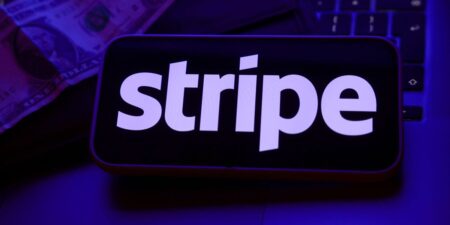Startups are betting big on vibe coding, and their bank statements show it.
Venture firm Andreessen Horowitz partnered with Mercury, a fintech that provides banking and payment tools for startups, to analyze transaction data from more than 200,000 customers between June and August.
The report, released Thursday, tracked where startups are spending their AI dollars and identified the top 50 AI-native application companies based on spending data.
a16z said one category seeing a clear enterprise shift is “vibe coding.” Startups are paying for apps that let anyone build software with prompts instead of programming.
Vibe coding tools like Replit, Cursor, Lovable, and Emergent ranked among the top 50 AI-native application companies. Replit placed third overall in total spend by Mercury users, right behind OpenAI and Anthropic.
“Vibe coding is no mere consumer trend — it has landed in workplaces,” wrote the three a16z staff who authored the report.
“We are interested in observing the vibe coding evolution over time. Will the space ‘fragment’ through a rise of platforms for developing different types of applications?” they added.
The report also said that horizontal AI tools — the kind anyone in a company can use, from meeting copilots to general AI assistants — made up about 60% of the companies on the top-50 list, compared with 40% for vertical tools built for specialized functions.
Creative apps like Canva and ElevenLabs, along with vibe coding tools, fall into that horizontal category, a16z said. While creative tools were once reserved for marketing and design teams — and coding tools for engineers — AI has made them accessible to anyone.
“AI has opened up applications in these categories that can be (and are) used by people in any role. We’re seeing this in a few categories, where typically domain-specific tools are becoming more horizontal,” the report said.
a16z did not respond to a request for comment from Business Insider.
Vibe coding is here to stay
Vibe coding has become one of Silicon Valley’s favorite buzzwords.
The term was coined in February by OpenAI cofounder Andrej Karpathy, who described it as “a new kind of coding” where you “fully give in to the vibes” and “forget that the code even exists.”
It has turned into a marketable skill. Companies from Visa to Reddit to DoorDash have posted jobs that require vibe coding experience or familiarity with AI coding tools. Meta said in July that it would allow job candidates to use an AI assistant in their coding interviews.
The money is following the momentum. In July, Anysphere, the company behind Cursor, announced a $900 million Series C fundraise at a $9.9 billion valuation. Swedish vibe coding startup Lovable also raised $200 million in Series A funding in July at a $1.8 billion valuation, according to PitchBook.
Still, the technology has its limits. Though vibe coding promises quick productivity gains and allows people with little coding experience to create software, tech executives say AI is still prone to mistakes, often writes unnecessarily long code, or lacks the proper architecture.
“It’s still not in a place yet where we would trust it with our core technology,” Rowan Trollope, the CEO of Redis, a software company, told Business Insider in an August report.
Read the full article here
















